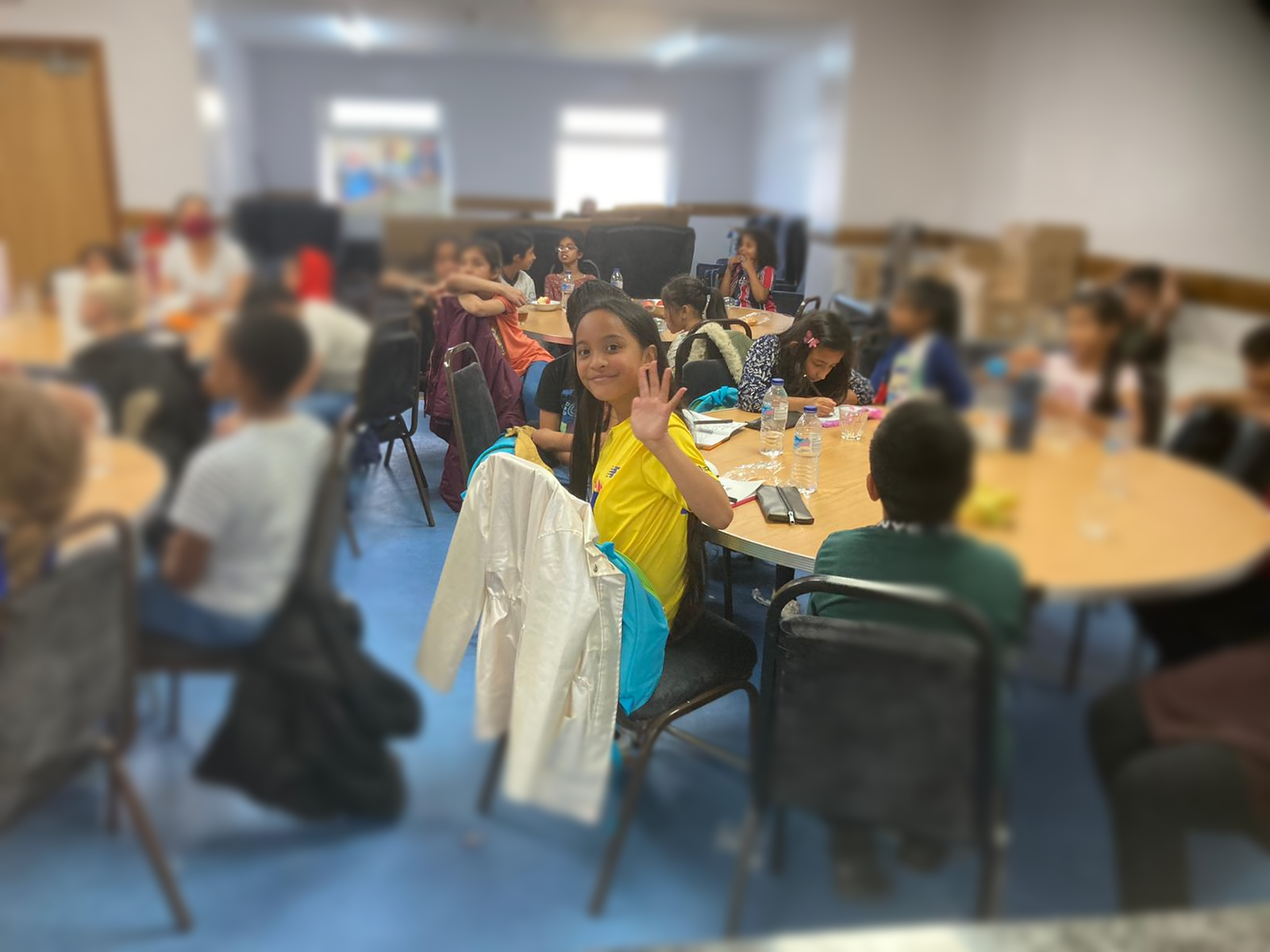
Multi-award-winning Social Enterprise
Producing Outstanding Results
Call us on 03300 109919
Case_Studies
Haf 2021 Case Studies
We compiled a series of short case studies to illustrate the impact of this programme on real people.
Leanne
Leanne didn't really like school, especially maths. She had some complicated living arrangements but dad was always supportive and she enjoyed coming to our HAF2021 programme. From early on in our HAF2021 programme we had to intervene because Leanne displayed high risks behaviours, sometimes putting herself in danger with reckless actions. We also noticed early on in the first week that Leanne wasn't paying attention to what was written on the whiteboard during the academic sessions. So when it came to answering questions she wasn't able to access higher level dialogue in the classroom. This impacted on her
understanding of the topic.
We talked to Leanne and she said she couldn't see the board properly. We learned that she was sat at the back of the classroom at school and couldn't really see the board. So we spoke to Leanne's dad and suggested they get a free eye test at a local optician. Leannes glasses arrived within two weeks. We're hoping it will help her catch up with her learning by accessing more visual prompts and board work.
By supporting Leanne and her dad to resolve this issue, we built up some more trust with the family and this allowed us to tackle her high risk behaviour. We doubled up on our development support, intensifying our efforts to co-create the programme with her so that she felt ownership and was empowered to behaviour better. By the following week, Leanne was no longer putting herself at risk when she was on our programme and began to engage more with our staff and other children. As a result she was able to fully participate in the trips towards the end of the programme.
Ali
Ali's was worried about his mum, she hadn't been the same since his dad passed away from covid about a year ago. She didn't socialise with anyone anymore and rarely went out of the house. This put pressure on Ali to do more and it felt unfair, but he didn't say anything to anyone because he wanted to support his mum.
We worked on engaging Ali, his younger sibling and mum, for weeks. The boys were able to attend our HAF2021 summer programme because we built trust with the family and picked them up and dropped them off each day. After a few weeks, we were able to persuade Ali's mum to attend the HAF family cook and eat session, with one of her friends, and she got to chat with other parents and see her children having fun. We also ran a stay and play family session on the same day so Ali's younger brother, aged 5, could have some quality bonding time with his mum, under the guidance of our play worker.
In the last week of the programme, we were in Ali's neighbourhood, and saw him walking with his mum and younger brother. We said hello and he told us they were going to the park. We felt great that the family were having fun together again. We know many families haven't had the time or space to deal with bereavement of close family members. We have been working with families to bring stress levels down so that the underlying trauma of bereavement can be worked through.
Ben
Ben is facing many challenges. His mum has a terminal illness and he struggles to access summer activity provisions because they are not autism friendly. However, we were able to accommodate Ben following a one to one session with him and his dad. We learned that Ben and his dad often went camping and did activities to make up for not accessing other provision. However, Ben's behaviour was often very challenging: he struggled to queue up and wait his turn without making a scene, became confrontational and verbally abusive when asked to do something he didn't want to, and struggled to play in a constructive way with other children.
We provided Ben with a consistent, caring environment where we challenged and supported him to take responsibility for his behaviour and share his interests with other children. Ben hated fruit and didn't really have breakfast. It took weeks, but Ben started to eat fruit each morning for breakfast and then began asking his parents for fruit at home. Ben even tried mushy peas with his fish and chips during a family cook and eat session. Ben initially felt out of place on our scheme because there are few white British children on our programme. So, we buddied Ben with a responsible Pakistani child and he soon began to feel more comfortable. Ben often found it difficult to queue or wait, but he learned to be respectful of other people by, for example, waiting his turn to talk to the teacher if he wanted something.
We, understand that ben's dad is stressed by Ben's behaviour , so we are continuing to work with the family to put in pl;ace additional support before the winter holiday activity programme.
Aisha and Fahad
Aisha and Fahad were worried about their parents, they had separated during lockdown and she was living with her two siblings at her grandma's house. They had started doing really badly at school, but nobody really notice or, at best, it had been attributed to disrupted schooling over lockdown. Nobody had really taken the time to understand what they were going through right now. They often felt they needed to be more mature and take on additional responsibilities to make it easier for their mum.
We worked with Aisha and Fahad for six weeks over the summer. They attended 93% of sessions and loved it. They got real time and space to have fun and be a kid again. Sometimes they needed to let loose some pent up frustration and became too silly. So we reinforced a climate of consistent care, challenge and support to help them develop additional self regulation skills.
We will continue to work with Aisha and Fahad over the next few months and re-assess their circumstances and resilience following our winter holiday programme.









